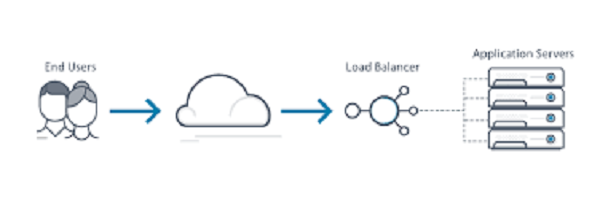
Technology has transformed how we do business today. The cloud, in particular, is making it easier for companies to access high computing power and an array of applications on the go.
The cloud is also becoming the go-to place for load balancing. Load balancing is the process of distributing workload across various computing resources to enhance efficiency.
How Does Load Balancing Work?
Load balancing is commonly used by high traffic websites. Think of it this way. Some popular websites these days get tens of thousands of users every day. This is a huge traffic volume.
The websites get concurrent requests from users, and they must return the correct text, image, or file almost instantly. One single server cannot do this, and as such, the sites will require additional servers to help deal with the workload.
But even with these servers in place, there is no way of knowing how to distribute the traffic coming to the website so that no single server is overloaded. This is where IP based load balancing comes in.
This is software that acts as a “traffic controller” directing traffic to servers that are capable of handling them. It ensures that all computing resources are efficiently utilized, leading to excellent customer experience.
What is Cloud Load Balancing?
Cloud load balancing is simply load balancing done in a cloud environment. The idea of using physical servers is no longer viable for most businesses. Instead, most prefer cloud servers.
Cloud servers are often more scalable compared to physical servers. They tend to have almost unlimited resources, but even then, you can’t overload one single cloud server. It will crash.
Cloud load balancing helps distribute workload or web traffic efficiently across various cloud servers. It helps companies better utilize their cloud computing resources as efficiently as possible.
Why Do I Need Cloud Load Balancing?
Cloud load balancing may offer several great benefits for businesses.
Here are some of them:
- Make Computing Resources Scalable
Cloud resources are extremely important in scaling businesses. They provide computing power if and when it’s needed depending on the volume of the workload at any given time.
Cloud load balancing solutions help you to fully leverage the power of cloud computing in efficiently scaling your business.
- Enhance Efficiency
Technology is an invaluable asset in business growth, but it has to be harnessed efficiently for the best results. This helps reduce costs and optimize performance, leading to more profits. A cloud load balancing software may help enhance the efficiency of your computer resources.
It detects the amount of workload in the network and redirects it to your cloud servers accordingly. This allows you to use all your computing power more efficiently.
Where to Get Cloud Load Balancing?
Well, there are several consultants online these days that offer cloud load balancing services. These companies can give you access to the best load balancing technology. But before you pick any provider, make sure they have a reputation on the market.
How many companies are they serving with their services right now? What are these companies saying about their experiences? Take your time as well.
Don’t just pick the first load balancing service you get. Shortlist about four and assess each one of them before making the final decision.